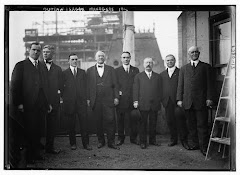 Reviewer: Trixie Belden
Reviewer: Trixie BeldenRating: 2 Pierogies
I read Bridge of Sighs because it was the monthly selection of my book club. According to members of the club, Richard Russo, the Pulitzer Prize-winning author of Empire Falls, is a beautiful writer and they surmised that Bridge of Sighs would be a great read. After reading the novel, I agree that Richard Russo can write beautifully, however, it fell short on all other requirements for a good book.
Bridge of Sighs tells the story of a man named Louis C. Lynch (nicknamed Lucy after an unfortunate roll calling incident in kindergarten) who is writing his life story starting from the age of five. And my god, his story is detailed. Just from reading pages 1-200 (and let’s not talk about pages 201-600), I could practically recite the weather and what Lucy had for lunch every day until he reached high school, not to mention every slight, sneer, or smile directed his way. One would assume that Richard Russo had an editor, but I saw no sign of one while reading this book.
In short (and let this be a lesson to you Richard Russo), Lucy was an awkward child who had no friends, except for a neighbor boy named Bobby Marconi. Bobby, however, does not consider Lucy to be a friend because he finds him to be pathetically needy (I mostly shared this sentiment). Their lives are contrasted throughout the novel as Lucy’s parents are “good” and Bobby’s parents are “bad”. In high school, Lucy’s father buys a perpetually failing corner store and Lucy, Bobby, and Lucy’s girlfriend Sarah find their lives revolving around the store and each other.
In addition to my complaints about the lack of editing (it was all I could do to make it past page 300), I had quite a few other complaints about this book.
First, for most of the book, I did not find the central characters to be appealing. For instance, Lucy was a weak boy who could not handle the rigors of childhood. I know that kids are mean, but I have no more sympathy for Lucy than I do for any other kid going through elementary school and middle school. Growing up is hard, yes, but we all do it and we all move on without fixating on our childhood problems for over 200 pages. It was just too much character development. For other reasons, I also did not like Lucy’s parents or Bobby. Although the characters grew on me towards the end, it felt like too little, too late.
I also found Richard Russo’s portrayal of the main female characters to be off-putting. Both Lucy’s mother and Sarah were talented and smart women who chose to marry their spouses for stability and devotion rather than for true love. The author contrasted their choices with the choices of Sarah’s mother and Bobby’s mother who married men that were exciting to them, but who ended up treating them badly. My problem with this portrayal is that it suggests that women have no control over their own destinies – that they must blindly succumb to the personality of the man that they marry and give up their futures to the whim of their spouse. Richard Russo also fails to acknowledge that not all men (and women) fall into his black and white categories. Not all smart, educated men are selfish and cruel and not all simple men are kind. Similarly, not all smart women are willing to sacrifice their dreams for stability.
While the book picked up its pace in the last 200 pages, I was left with a feeling of dislike towards the characters. And that made me feel bad about myself - that I am not as kind-hearted and open-minded towards people less fortunate or less ambitious than myself as I should be. In conclusion, while it may be a good thing that this book made me more aware of my own faults, I can’t help feeling that I wasted too much time (600+ pages) learning this lesson.

Is that supposed to be a Picksburg book? Because everyone knows the Bridge of Sighs is downtown between the new court house and medieval gaol, now used for custody fights.
ReplyDelete